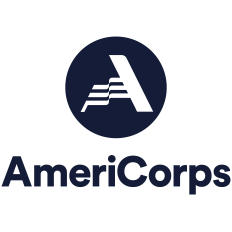December 9, 2013
Dan Micciche's ideas about expanding tutoring could help the mayor and DISD launch an I Tutor Dallas! campaign
Editor’s Note:
This newspaper published an editorial in late July urging Mayor Mike Rawlings to help create an I Tutor Dallas! campaign. One person responding to that editorial was Dallas Independent School District trustee Dan Micciche. The attorney is interested in expanding proven tutoring programs across the district. Here is an email exchange that Micciche and I did this week:
You are interested in seeing tutoring expanded across DISD. What got you thinking about this?
Several things.
First, there is my personal experience in tutoring and mentoring elementary school students.
In 2005, I started and led my firm’s school adoption program. We selected a high poverty DISD elementary school and continued the program for seven years. (The campus closed in 2012 as part of the school consolidation plan.)
We engaged in many different volunteer activities, but the focus was on tutoring and mentoring.
We learned that DISD has truly excellent teachers who are extremely committed to helping their students achieve success.
We also found that many students didn’t have the benefit of an adult who helps reinforce their classroom learning.
Kid, of course, do better in school when their parents are engaged, read to them, help them with their homework, and take them to museums and historical places.
But it would be foolish to ignore the fact that the parents of kids who live in poverty often lack the knowledge, time, and resources to supplement a child’s education to the extent that middle class families can.
The tutoring, even in an unstructured program such as the one we had, helped bridge some of that gap.
Second, there is a large body of research indicating that children who do not read at grade level in elementary school have difficulty in subsequent grades comprehending the written material that is an essential part of academic success. Children who do not read at grade level in elementary school are much less likely to graduate from high school, attend college, and succeed in the workplace.
Third, Dallas is a city with a history and spirit of civic responsibility. I have had many friends, neighbors, businesses, non-profits, and ministers ask the question: how can we help the children of DISD achieve academic success?
Fourth, the majority of fourth graders in low-income families are reading below grade level. If we want kids from families of all income levels to succeed, if want our neighborhoods to grow and prosper, we have to change this.
While we have hundreds of volunteer activities and thousands of volunteers, it seemed clear to me based on my own experience and the research that the most significant volunteer work one can do is to tutor a child.
How can you make sure that schools have an effective tutoring program? It’s one thing for a volunteer to go and read to young students, which is important, but tutoring programs also should help drive achievement.
That’s right.
In terms of our current volunteer programs, we have a lot of great community partnerships doing a lot of wonderful things for our kids and schools. We are very thankful for the support. And we also have a great staff that helps recruit and involve community members in our schools. We want to keep those programs in place.
But the goal of my proposal is to ultimately have in place tutoring programs in all of our elementary schools that will help improve academic achievement.
We have several tutoring programs that seem to be working quite well. They include Reading Partners, which is in ten of our elementary schools, and The Launch Collaborative, which is in two of our schools.
But before we attempt to spread tutoring programs across the district, we need the administration to provide us with considerable information on our current programs and best practices elsewhere. Plus, we need its recommendations for good tutoring programs.
Like what information?
I have asked the administration to do a census of existing volunteer tutoring programs at our elementary schools, including:
• cost per campus
• number of kids served per campus
• number of volunteers per campus
• focus of the program
• outcomes data
• source of funding
• how do teachers and principals rate the program? (Is it beneficial to students? If so, is it marginally beneficial or highly beneficial?) Is burdensome on teachers and principals?
• what kind of training and supervision of volunteers is provided?
• what type of curriculum is used?
It would also help to have a community committee give input on tutoring programs. We will also need information on funding and whether federal, state, or private funding is available.
The U.S. Department of Education in 2001 identified important characteristics of structured programs in a background research study, and found that tutoring works best if:
1. There are trained people under careful supervision.
2. There is careful monitoring and reinforcement of a student’s progress.
3. There are frequent and regular tutoring sessions, with each session between 10-60 minutes daily (regular tutoring sessions generate the most consistent positive gains).
4. Tutoring sessions are well-structured and content and delivery of instruction is carefully scripted.
5. There is close coordination with the classroom or teacher.
6. There is intensive and ongoing training for tutors.
Do you see these approaches across the district?
It appears to me that we generally don’t make it easy for our elementary schools to set up volunteer tutoring programs. If principals and teachers want to have a volunteer tutoring or mentoring program, they mostly have to make up one from scratch.
It is also my perception that we don’t have consistent metrics for measuring the effectiveness of the tutoring. And we don’t have a consistent, focused message to recruit volunteers to where they are most needed.
We should make it as easy as possible for principals and teachers to have an effective volunteer tutoring program at their campuses. We should not expect principals and teachers to have to create one from scratch on their own. We need to minimize the organizational and administrative burdens on the principal and teachers, utilize a proven curriculum that works, and make it easy for community members to apply to help.
Obviously, the worst thing we can do is to have a volunteer program where the volunteers don’t really help but simply get in the way of our teachers and principals while they are trying to their jobs.
But if a qualified person comes to a school to volunteer, we don’t want her being turned away, or asked to do busy work, make copies, or work in the cafeteria if she can instead participate in an effective tutoring program that is easy to administer.
If we have the proper systems and support in place at each elementary school, we will be in a position to recruit and retain volunteers at an unprecedented level and to engage them in meaningful work that reinforces classroom learning.
The call for volunteers would go something like this:
“If you want to help kids in DISD, if you want to help change the life of a child, if you want to be part of making Dallas the greatest city in America, then help us ensure that all of our kids read at grade level. Become a tutor. Helping a child learn to read proficiently will be among the most meaningful and rewarding things you will ever do.”










